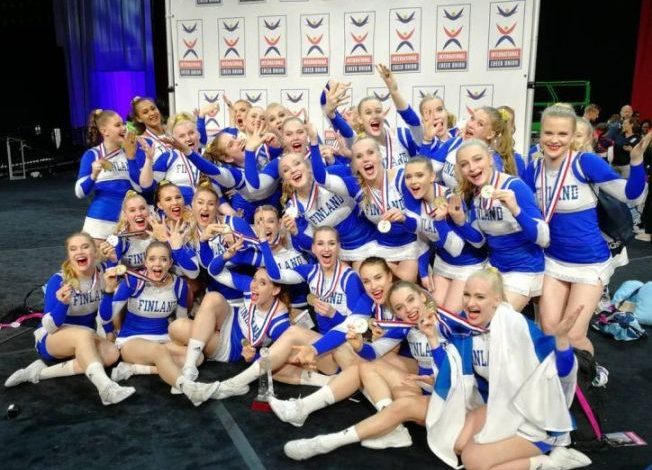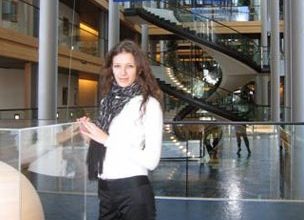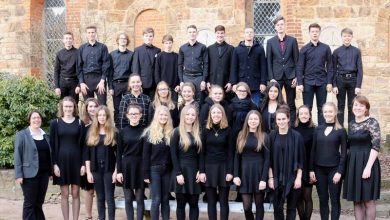What will you learn in Suomi?
Studying in Finland? Nothing is easier! Of course, if you have at least three thousand euros, hard work, knowledge of the language, good health – you have to work hard, gnawing at the granite of science.
So what do we have? As the Statistics Department assured us, at the beginning of the 2007/2008 academic year, 68,168 students received higher education in Estonia with 6,088 vacancies in the Labor Market Department. This clearly goes beyond the mark “come to work.” Maybe trust Finnish officials from education?
And so we pack our bags and go to the “old” countries of the European Union. Some are laborers, some are for advanced training, and some get a piece of bread in exchange for knowledge acquired at universities. The latter is more difficult – education must be confirmed, so that with a license and certificate, otherwise – write is gone.
Unfortunately, the fact that the number of specialists who have received higher or secondary specialized education in Estonia is quite large aggravates the issue of employment, forcing recent students to go for a “better life” in Helsinki, Vanta and Espoo. This is fully explained by the proximity to the father’s house, and the relatively inexpensive ferry service, and the similarity of mentality, culture and language.
Moreover, a third of those who left prefer to replace long-term work with immigration, followed by the relocation of their entire family to a foreign state – there is no time to wait for the Estonian economy to revive from the ashes of interstate strife. You have to live. And live with dignity.
Many will probably be interested in the opportunity to get basic secondary, complete secondary and higher education in Suomi. In addition, the system of adult education and retraining deserves special attention, which means confirming the acquired skills depending on the requirements of the host country, acquiring an additional profession as a hobby, or obtaining a specialist certificate. It is very important that the state provides excellent opportunities for parallel learning of the Finnish language.
Well, in order not to beat around the bush, it is necessary to provide information, as they say, firsthand.
Higher education institutions
Helsingin Yliopisto (HY, University of Helsinki, 1640)
The university is famous for the fact that seven presidents of Finland studied at it, it is part of the League of European Research Universities (LERU) and has branches in 17 cities of Finland. Today it has about two thousand foreign students. There is the possibility of studying in English, but only for those applicants who are going to enter the magistracy, in particular, in the specialty: statistics and comparative analysis, bio and food technologies, business, forestry, space science, computer science. Documents can be sent from November to January, depending on the faculty.
Teknillinen Korkeakoulu (TKK, Technical University of Helsinki, 1849)
For 15 thousand students there are about a thousand foreigners. The university works closely with educational institutions of the EU countries. Programs do not differ much from those used at Tallinn University of Technology, which contributes to painless translation and facilitates the possibility of exchange training. Applications are accepted from November to January.
Teatterikorkeakoulu (TeaK, Theater Academy, 1979)
The Academy teaches acting, directing, drama, choreography, and staging theory to only 350 students, ten of whom are foreigners. Training in Swedish and Finnish. As a practice in the theater at the Academy annually staged to fifty performances. Application deadlines depend on the faculties chosen, as in the Academy of Arts.
Helsingin Kauppakorkeakoulu (HSE, Helsinki Higher School of Economics, 1911)
The branch of the school is in Mikkeli. About two hundred foreigners wished to master the offered specialties: finance and analytics, economics, communications, management and marketing. Undergraduate analytics and international business are taught in English to international students. For masters, these are finance, international business and communications. The deadline for filing documents continues until March – April.
Sibelius-Akatemia (SibA, Sibelius Academy, Helsinki, 1882)
Submission of documents is carried out until March. The Academy is Finland’s largest music educational institution. Today there are branches in Kuopio and Seinajoki. Among almost two thousand students there are about 40 foreign students. In Finnish, jazz, vocals, musical productions and technologies, conducting, church music, music management are taught.
Kuvataideakatemia (KuvA, Academy of Arts, 1848)
This is the only academy in Finland that provides higher education in the field of fine arts. Only fifty lucky people from other countries have the right to study painting, sculpture, printing, visual art. Initially, there is the possibility of learning in English, but subsequently students must smoothly switch to the state language.
On the steps of Haaga-Helia Ammattikorkeakoulu you can often hear Russian speech. It is this institution specializing in economic sciences that accepts more and more foreign students. I managed to chat with one of them about this and that, about them and about us. Anton Kireev admitted that studying is easy for him, because for almost 11 years of living in Finland he has perfectly mastered the state language.
– Anton, what specialties are most suitable for a foreign entrant, in particular, a Russian-speaking one?
“It’s hard to say what would suit everyone.” People are different, and preferences too. I chose the economy and was not mistaken. Already running my own little business.
– How many years have you studied?
While I learned to be an economist, I spent two years and acquired the highest applied degree. The next step will take 4.5 years – this is management training and a professional diploma in economics.
Do you work at the moment?
Yes, I have my own company, but I also worked part time while studying, and studying did not distract me from work, just like work from studying. Got knowledge in the evening.
What language did you study in?
In Finnish, of course. But education in English will not be a problem for anyone.
How do the teaching staff and students relate to Russian speakers?
There was no problem. Teachers are very loyal, always ready to explain and help, pull up. And among the students, I never felt like a black sheep.
Is it easy to find a good job after graduating from Haaga Ammattikorkeakoulu?
I think it’s no secret to anyone that Finnish employers primarily prefer good specialists. So, it is possible to get such a baggage of knowledge in a specialty not accredited by the state that all doors will open before you.
My next interlocutor asked me not to give her name. Let Anya be. Despite the fact that the girl liked the teaching staff of Helsingin Yliopisto and she found a common language with students, it is difficult for her to combine study and work. The loads are huge, there are a lot of lectures. And during the school year, you have to prove your worth by a considerable number of term papers and research papers. Anya works as a seller in one of the shops in the center of Helsinki and cannot refuse to earn money, because you won’t live on a scholarship. He is studying business. And when asked if she had only come to Finland to study, Anna honestly replies that she married and moved from St. Petersburg to Vantaa under the family recovery program.
Education in higher education, usually up to five years, sometimes more, depending on the specialty. For admission in accordance with the regulatory requirements of the countries of the European Union, a certificate of secondary or secondary special education is needed, documents are submitted according to the general recruitment system. Knowledge of basic English is appreciated. And do not despair if the student for some reason did not manage to submit an application for admission. There is always the opportunity to negotiate with university staff about attending preparatory language courses at the university, which in the future will greatly facilitate the admission task.
If you have a diploma of higher education associated with a desire to get a job in Finland, its confirmation is mandatory. Legalization is paid. For these questions, contact the Finnish National Board of Education. If you already have officially recognized initial knowledge in a particular professional field and you are eager to continue studying abroad, then depending on the educational institution the disciplines will be counted in whole or in part. Some specialties require a license, for example, healthcare.
Documents for admission to alma mater must be submitted in advance – before the start of the next school year. Additional information can be obtained without special problems from instructors on training issues who work in any of the educational institutions. They will also help you decide on other possible options for entering a particular university.
Do not forget that employers really appreciate such an aspect as the employee having a diploma obtained abroad, including in Finland, in case you plan your further activities at home. Particular attention should be paid to such strengths of Finnish education as architecture, ecology, biotechnology, information technology, forestry and design. Finland has 30 institutes and 20 universities, which are funded by the Ministry of Education and municipalities, therefore, for both Finnish students and foreigners, education is still free. However, despite this, the applicant must show that he is financially secure, that is, he has on his bank account at least three thousand euros, or income of five hundred euros for each month. In a difficult financial situation, you should contact the CIMO Center for International Mobility, founded in 1991, which is funded by a board of trustees headed by a representative of the Ministry of Education. The purpose of the expert service center is to support international cooperation in the field of education, culture and business life of youth.
You should not be afraid of the financial side, because, as Derek Bock, president of Harvard University, told us, “if, in your opinion, education is too expensive, try ignorance.”
This post is also available in:
 English
English  Русский (Russian)
Русский (Russian)






